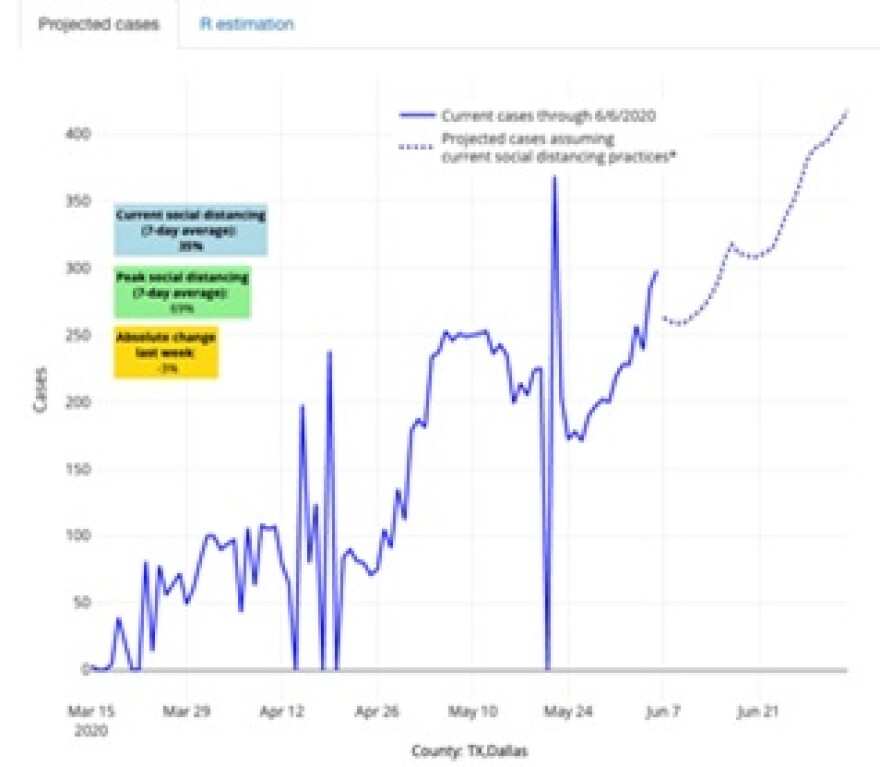As the Texas economy reopens and restrictions are lifted, the number of COVID-19 cases and hospitalizations in Dallas County is increasing.

Forecasters from the PolicyLab at Children's Hospital of Philadelphia have been monitoring how COVID-19 is spreading. The lab's director, Dr. David Rubin, said with commerce and travel returning to North Texas, the rate of transmission in Dallas County is increasing.
Friday the county reported the highest single-day number of cases — a record that has been broken daily in the past week. Hospitalizations have also gone up over the last three days, reaching the highest level recorded since the pandemic began. Dallas County also reported that emergency room visits for COVID-19 symptoms accounted for about a quarter of all emergency room visits.
"There was a brief period in May where it looked like things were stabilizing in Dallas," Rubin said. "But now they're heading North again, and they're supported by lots of other areas around them starting to show increased risk as well."
Rubin said the PolicyLab model does account for the higher number of tests being done in Dallas County, which results in higher case numbers. There's been no word from local leaders on the amount of tests being administered each day.
A few weeks ago, PolicyLab researchers thought the high heat and humidity in Texas would slow the spread of COVID-19. Now, they're not sure.
"It's enough to mitigate transmission, but not enough alone to kind of bail us out. And clearly we've seen that now in Texas," Rubin said.
He said the goal is to find a safe way to continue reopening, and there still might be a way to do that and bring case numbers down. Rubin recommended putting stricter regulations in place, like thorough health and temperature screenings when people enter buildings.
"We have to understand there are travelers coming through [and] the public workers who don't have the opportunity to protect themselves," he said. "We need to have masks in all of our indoor locations. We need to have a strong focus on hygiene. We need to protect our outbreak locations very carefully with strong surveillance."
Rubin said to keep transmission low and decrease case numbers and hospitalizations, public officials need to make some trade offs.
"If you don't accompany these reopenings with very strong provisions in terms of these indoor locations where the moments of transmission are occurring [and] your outbreak locations," he said. "I think it'll eventually catch up to you."
Rubin said PolicyLab researchers are also keeping a close eye on Houston, where hospitalizations have doubled in the past few weeks.





